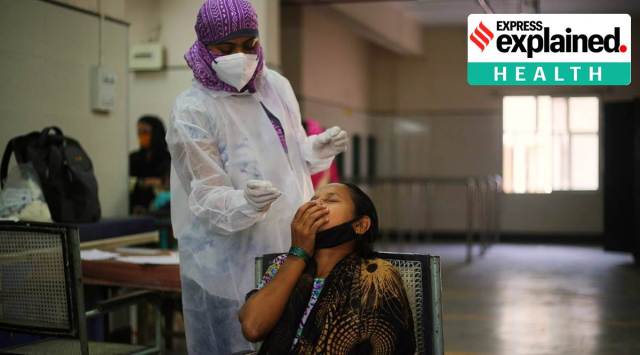- India
- International
New research: Loss of smell, taste was almost 100% during Delta surge
The small study also found that some people with the earliest infections were continuing to experience loss of these senses months later and didn’t even realise it. The study has been published in the journal Med.
 The study has been published in the journal Med.
The study has been published in the journal Med.The loss of smell and taste with a Covid-19 infection during the Delta surge was a prevalent symptom and wasn’t prevented by vaccination, new research suggests. The small study also found that some people with the earliest infections were continuing to experience loss of these senses months later and didn’t even realise it. The study has been published in the journal Med.
In participants with active infections during the Delta surge, a majority (22 of 25) had been vaccinated. Screenings found that 100% were experiencing a diminished or lost sense of smell – but only 54.5% self-reported any problem with odour detection, the Ohio State University said in a press release.
Buy Now | Our best subscription plan now has a special price
The research team used an existing objective screening tool to collect sensory function data from 123 never-infected control participants and 65 people who had previous or active Covid-19 infections. The researchers found that about three-fourths of participants, whose mostly mild Covid infections had occurred before Delta’s dominance, reported no ongoing smell and taste losses. However, over half of those participants were found by the objective screening, conducted between 102 and 785 days after their infection diagnosis, to have a loss of smell.
Beyond these silent smell and taste losses, there were also people who reported that they hadn’t regained taste or smell function for longer than six months.

Effects on the senses include diminished or complete loss of smell and/or taste, disordered smell and/or taste and, least common, smelling odours that are not present at all.
The sensory function screenings were conducted with a US National Institutes of Health (NIH) tool consisting of a 9-item scratch-and-sniff odour identifier and an intensity rating of bitterness in a sip of quinine. The odour-detection results were adjusted for age.
Beyond affecting the quality of life, the loss of smell and taste has health ramifications that include negative effects on nutrition intake and a reduced ability to detect danger — such as a fire or spoiled food, the release said.
“The disease’s impact on smell and taste is under-reported. This is a public health concern that there may potentially be some broader impacts of Covid-19 that we don’t realise are there,” the release quoted the study’s senior author, Dr Kai Zhao, as saying.
Paper: Kym Man et al, ‘Chemosensory losses in past and active likely Delta variant break-through COVID-19 cases’, Med, 2022. cell.com/med/pdf/S2666-6340(22)00220-3.pdf
Source: Ohio State University
More Explained
EXPRESS OPINION
Apr 19: Latest News
- 01
- 02
- 03
- 04
- 05































